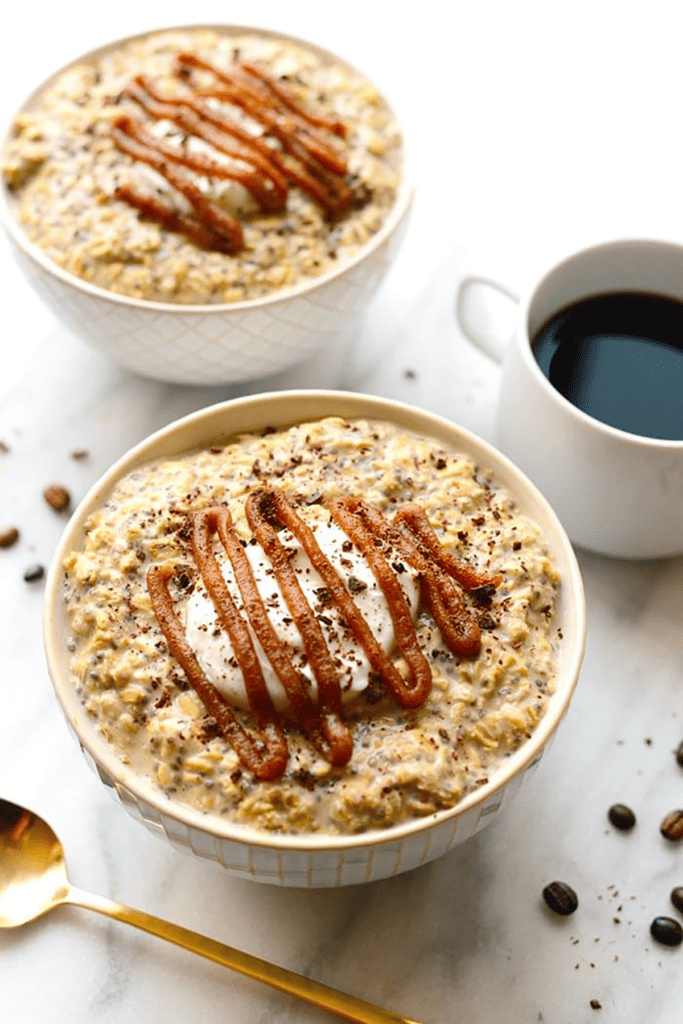
Feeling sick can leave you drained, foggy, and unsure of what to put on your plate. The good news? Certain foods are not only gentle on your system but also packed with the nutrients your body craves during recovery. From soothing broths to easy-to-digest porridges, discover the top five dishes that bring comfort, hydration, and immune-boosting benefits when you need them most.
Why Does Food Matter So Much When You’re Sick?
Food plays a crucial role in recovery when you’re sick because it provides the energy and nutrients your body needs to fight infection, repair tissues, and maintain strength. The right foods can help soothe symptoms, keep you hydrated, and support your immune system, making it easier for your body to heal. Eating nourishing, easy-to-digest meals can also prevent further discomfort, such as nausea or digestive upset, while ensuring you get enough vitamins, minerals, and fluids to speed up recovery and restore your well-being.
What To Eat When Sick: 5 Best Dishes
1. Bone Broth
Bone broth is a time-honored remedy for illness, prized for its soothing warmth and rich nutritional profile. Simmered from bones, vegetables, and herbs, it delivers essential minerals, collagen, and amino acids that support immune function and gut health. Its gentle, hydrating nature makes it easy to sip even when your appetite is low, helping to keep you nourished and comforted during recovery.
2. Chicken Soup
Chicken soup is a classic comfort food for a reason. The combination of tender chicken, vegetables, and broth provides protein, vitamins, and hydration—all crucial for healing. The steam from hot soup can also help relieve congestion and soothe a sore throat, making it an ideal choice for colds and flu.
3. Oatmeal or Rice Porridge
Oatmeal and rice porridge are gentle on the stomach, making them perfect for those with digestive issues or low appetite. These soft, easily digestible grains provide slow-releasing energy and can be customized with simple toppings like bananas or honey for added nutrients. Their mild flavor and texture are especially comforting when you’re feeling unwell.
4. Steamed Vegetables
Steamed vegetables like carrots, zucchini, and sweet potatoes are packed with vitamins and antioxidants that support your immune system. Cooking vegetables until soft makes them easier to digest, while still delivering important nutrients. Pair them with a little olive oil or a sprinkle of salt for extra flavor and nourishment.
5. Herbal Teas
Herbal teas such as ginger, chamomile, or peppermint offer both hydration and symptom relief. Ginger tea can help ease nausea, chamomile promotes relaxation and better sleep, and peppermint can soothe headaches or digestive discomfort. Sipping warm tea throughout the day keeps you hydrated and provides gentle, natural support as your body heals.
Should You Eat Even If You Don’t Have Much Of An Appetite?
Yes, it’s important to try to eat even if your appetite is low when you’re sick, as your body still needs energy and nutrients to fight off illness and recover. While you may not feel hungry, eating small, frequent meals or snacks can help maintain your strength, prevent muscle loss, and support your immune system. Focus on gentle, easy-to-digest foods like broths, porridges, or smoothies, and prioritize hydration. Listening to your body is key, but making an effort to nourish yourself—even in small amounts—can make a significant difference in how quickly you regain your health.
Does Chicken Broth Provide More Than Just Warmth And Hydration?
Absolutely—chicken broth offers much more than simple warmth and hydration. It’s rich in essential nutrients like protein, amino acids, and minerals that help support immune function and tissue repair. The broth also contains gelatin and collagen, which can aid in gut health and soothe inflammation. Additionally, the steam from hot chicken broth can help clear nasal congestion and ease sore throats, making it a comforting and restorative choice when you’re feeling unwell.
What Makes Broth So Soothing For Colds And Flu?
Broth is especially soothing for colds and flu because its warmth helps ease congestion, soothe sore throats, and provide comfort when you’re feeling run down. The steam from hot broth can open nasal passages and make breathing easier, while the liquid itself keeps you hydrated—crucial for recovery. Bone broth is also gentle on the stomach and easy to digest, delivering essential nutrients and electrolytes without overwhelming your system. This combination of hydration, nourishment, and comforting warmth makes broth an ideal choice for supporting your body through illness.
Why Is Honey Often Suggested For Sore Throats Or Coughs?
Honey is often recommended for sore throats and coughs because it has natural soothing and antimicrobial properties that can help reduce irritation and discomfort. Its thick, smooth texture coats the throat, providing immediate relief from scratchiness and dryness. Additionally, honey can help suppress coughing, making it easier to rest and recover. Studies have shown that honey may be as effective as some over-the-counter cough remedies, making it a trusted, natural option for easing symptoms when you’re feeling under the weather.
Bone Broth vs Chicken Soup Whats Better When Sick
|
Feature |
Bone Broth |
Chicken Soup |
|
Nutritional Value |
High in minerals, collagen, and amino acids |
Good source of protein, vitamins, and veggies |
|
Digestibility |
Very easy to digest, gentle on the stomach |
Easy to digest, but may contain more solids |
|
Hydration |
Excellent for hydration |
Excellent for hydration |
|
Immune Support |
Supports gut health and immune function |
Provides immune-boosting nutrients |
|
Comfort Factor |
Warm, soothing, and calming |
Hearty, comforting, and filling |
|
Best For |
Severe illness, digestive issues, low appetite |
General sickness, colds, flu, more appetite |
|
Preparation |
Requires long simmering of bones |
Quicker to prepare with chicken and veggies |
|
Flavor |
Rich, savory, and concentrated |
Mild, balanced, and familiar |
Common Mistakes To Avoid When Sick
- Skipping Meals or Not Eating Enough: Even if your appetite is low, your body needs energy and nutrients to heal. Skipping meals can slow recovery and weaken your immune system.
- Dehydration: Forgetting to drink enough fluids is a common mistake. Staying hydrated is essential for recovery, especially if you have a fever, diarrhea, or are sweating more than usual.
- Choosing Sugary or Processed Foods: Foods high in sugar or artificial ingredients can increase inflammation and provide little nutritional value, making it harder for your body to recover.
- Ignoring Food Safety: Eating foods that are undercooked or improperly stored can increase your risk of foodborne illness, which can be especially dangerous when your immune system is already compromised.
- Overeating Heavy or Greasy Foods: Rich, fatty, or fried foods can be hard to digest and may worsen symptoms like nausea or stomach upset. Stick to lighter, easy-to-digest meals for faster recovery.
Conclusion
When you’re feeling sick, choosing the right foods can make a significant difference in your comfort and recovery. Nourishing options like bone broth, chicken soup, gentle porridges, steamed vegetables, and soothing herbal teas provide essential nutrients, hydration, and immune support while being easy on the stomach. Avoiding common mistakes—like skipping meals or reaching for processed foods—can further help your body heal. By focusing on simple, wholesome meals and listening to your body’s needs, you can support your recovery and get back to feeling your best sooner.
Final Thoughts
Wondering how to nourish your body and boost your recovery when you’re feeling under the weather? Explore Dr. Kellyann’s best sellers, where you’ll find comforting options like chicken, beef, and french onion bone broths designed to support your wellness from the inside out. For an extra boost, try adding Collagen Peptides to your daily routine, or treat yourself to the delicious chocolate and vanilla shakes from Dr. Kellyann’s collection. Take your self-care to the next level with the trusted products from Dr. Kellyann’s.
Sources
- https://www.sjhsyr.org/newsroom/blog-articles/nutrition-mythbusters-feed-cold-starve-fever
- https://www.gundersenhealth.org/health-wellness/recipes/its-okay-to-eat-when-youre-not-hungry
- https://www.healthline.com/health/honey-for-sore-throat






